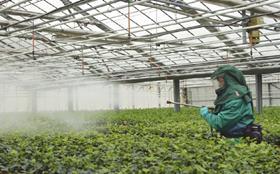
The UK Crop Protection Association (CPA) has welcomed the release of a new document that outlines the potential impact of new European Union pesticide regulations on UK agriculture and horticulture.
According to the CPA, the factsheet – which was compiled and released by the Parliamentary Office of Science and Technology (POST) – provides a broad overview of the regulatory context and maintains the profile of the issue among UK politicians.
However, the CPA has expressed concerns that the report over-emphasises the role of other pest control strategies in compensating for the loss of vital crop protection products.
'Crop rotation, cultivation, biological control and selection of resistant varieties are already widely used alongside crop protection products as part of an integrated approach to crop protection,' said Dominic Dyer, chief executive of the CPA. 'We simply cannot maintain an adequate supply of high quality, affordable food without the judicious use of pesticides.'
According to Mr Dyer, CPA also views the POST report as a missed opportunity to highlight various negative impacts of the new regulations.
'Switching to a hazard-based system offers no extra protection to consumers, and will simply result in many safe and widely-used products being withdrawn from the market,' he said.
'The stark facts missing from the POST report are that EU plans to slash the number of pesticides available to Europe's farmers will not only reduce crop yields and quality, but will also lead to higher food prices, increased food safety risks, a higher carbon footprint and job losses in UK food production.'
He urged the EU to submit its decisions to greater independent scientific challenge and scrutiny before making future decisions, claiming that 'sound science' has been over-ridden by short-term political expediency in EU decision making.
New legislation governing the use of pesticides in the European Union was approved by Members of the European Parliament (MEPs) in January following a second reading vote, aimed at ensuring safer use in production and daily life.
Under the regulations, which must be implemented by member states by 2011, the number of pesticides available to member states have increased, but dangerous toxic chemicals in certain products have been banned.



